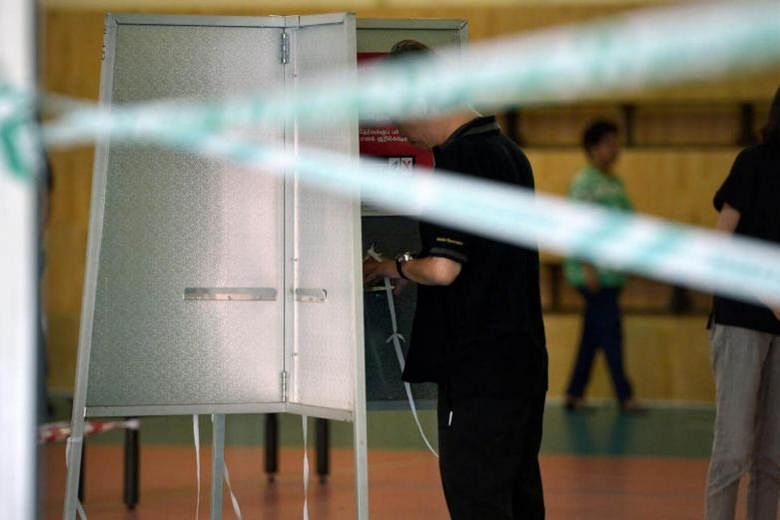SINGAPORE - Singaporeans should recognise that foreign campaigns to influence local politics and electoral processes exist, and that such campaigns can take many forms, said Minister in the Prime Minister's Office Chan Chun Sing on Tuesday (Aug 1).
For example, they can take the form of donations to unsuspecting Singaporeans or local organisations. Though seemingly harmless, this can later result in influence and pressure being exerted over those who received the surreptitious contributions.
Foreign influence campaigns can also take place online and through social media, in the form of fake news.
Mr Chan outlined the three main measures taken by the Government to guard against foreign interference in local politics, saying they will need to evolve in tandem with changes in technology, media platforms and communications channels.
He was responding in Parliament to Ms Cheng Li Hui (Tampines GRC), who asked about the measures in place to safeguard Singapore from foreign interference in elections.
"Our consistent position has always been that politics in Singapore is meant only for Singaporeans. We chart our own course and bear responsibility for our choices," said Mr Chan.
The measures are also in place for the presidential election in September, he added.
Safeguards against foreign interference
First, Singapore's election laws expressly prohibit foreigners from taking part in election activities.
The Political Donations Act prohibits election candidates and political parties from accepting foreign funding. The Public Order Act was also amended this year to make clear that the Police can refuse to grant a permit for public assemblies and processions organised by foreigners or foreign entities, which have political goals.
Second, Singapore has measures to protect government networks and IT systems, so that they are not used by others to subvert its election processes.
But election candidates and political parties also need to safeguard their own systems, said Mr Chan.
He advised them to approach SingCERT, a division of the Cyber Security Agency, if they needed advice on the security of their IT systems.
Third, the Government restricts and controls the ownership of newspapers and broadcast media, to prevent foreigners from manipulating media platforms to influence local politics, said Mr Chan.
This is done through the Newspaper and Printing Presses Act and the Broadcasting Act.
The Government will also introduce legislation to combat fake news, as well as run campaigns to help Singaporeans be more discerning in what they read.
Still, the Government cannot act alone, said Mr Chan, who encouraged Singaporeans to do their part as well.
"Each one of us must play our part by being vigilant and discerning about what we read or hear, in order to safeguard our democratic processes from being undermined by foreign influence," he said.
"Ultimately, our best defence is a discerning electorate that recognises the realities of geopolitics and the world we live in today," he added.
He declined to reveal whether there had been any incidents of foreign interference in Singapore's elections, which Mr Png Eng Huat (Hougang) had asked him about.
"The details will not be convenient for me to address publicly but suffice to say that we never let our guard down," said Mr Chan.


